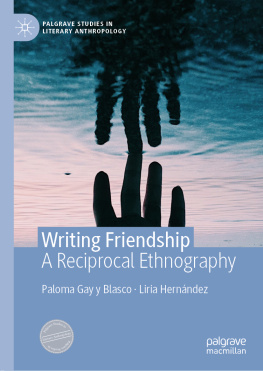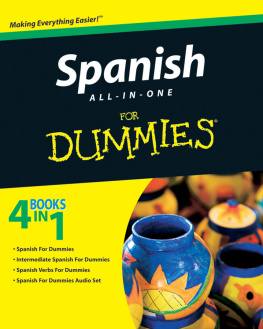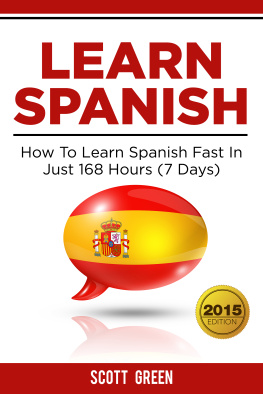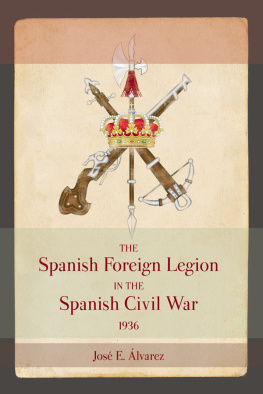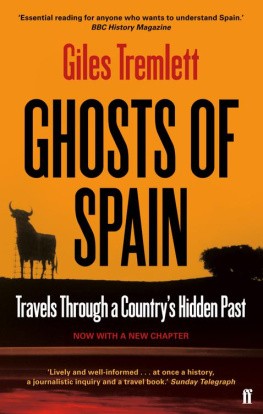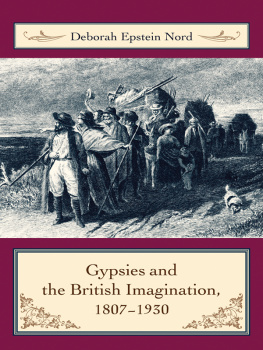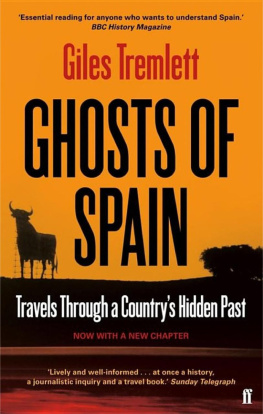Mediterranea Series
General Editor: Jackie Waldren, Lecturer at Oxford Brookes University; Research Associate CCCRW, Queen Elizabeth House, Oxford; and Field Co-ordinator, Deya Archaeological Museum and Research Centre, Spain.
This series features ethnographic monographs and collected works on theoretical approaches to aspects of life and culture in the areas bordering the Mediterranean. Rather than presenting a unified concept of 'the Mediterranean', the aim of the series is to reveal the background and differences in the cultural constructions of social space and its part in patterning social relations among the peoples of this fascinating geographical area.
First published 1999 by Berg Publishers
Published 2020 by Routledge
2 Park Square, Milton Park, Abingdon, Oxon OX14 4RN
605 Third Avenue, New York, NY 10017
Routledge is an imprint of the Taylor & Francis Group, an informa business
Paloma Gay y Blasco 1999
All rights reserved. No part of this book may be reprinted or reproduced or utilised in any form or by any electronic, mechanical, or other means, now known or hereafter invented, including photocopying and recording, or in any information storage or retrieval system, without permission in writing from the publishers.
Notice:
Product or corporate names may be trademarks or registered trademarks, and are used only for identification and explanation without intent to infringe.
Library of Congress Cataloging-in-Publication Data
A catalogue record for this book is available from the Library of Congress.
British Library Cataloguing-in-Publication Data
A catalogue record for this book is available from the British Library.
ISBN 13: 978-1-859-73253-3 (hbk)
Typeset by JS Typesetting, Wellingborough, Northants.
For Liria and Carmen, who wanted to learn about my world as much as I wanted to learn about theirs
It is impossible to thank all the people who, in one way or another, have contributed to the writing of this book, I am grateful to them all but I feel indebted to some in particular.
In Spain, my deepest gratitude goes to the Gitanos of Jarana: they endured the constant presence of a non-Gypsy outsider and were extremely patient with me. Some spent much time and energy teaching me to become a 'proper woman' and I cannot repay their kindness and their concern. Throughout the book I have disguised their names and personalities, and I have also changed to the fictional 'Jarana' the name of the neighbourhood in Madrid where they live. I am particularly grateful to Liria de la Cruz, Ramn Jimnez, Neni Jimnez, Angel Jimnez, Francisco Hernndez Jimnez, Mara Hernndez Jimnez, Carmen de la Cruz, Francisco Hernndez Hernndez, Elisabeth Hernndez and Familia Ramrez. They became my family among the Gitanos. I also wish to thank Consuelo Borjas, Carmen Gabarre, Antonia Gabarre, Carmen Hernndez, Carmen Ramrez, Luis Ramrez and his wife Paloma, Aquilino Ramrez, his wife Luz Divina and their children, Eugenia de la Cruz, Mara Hernndez de la Cruz, Roco Hernndez, Antonio Hernndez and his wife Isabel, Emilio Hernndez and his wife Dolores, Angel de la Cruz, his wife Tunda and their daughters Neni, Azucena and Mara, Arturo de la Cruz and his wife Remedios, Isabel Borjas, Fifo de la Cruz and his wife Consuelo, and Carlos Hernndez and his wife Noem.
Teresa San Romn helped me find a fieldwork location and provided me with constant advice and emotional support during and after fieldwork. My debt to her and her work is immense. The Missionaries of Mara Mediadora in Villaverde Alto gave me a home, fed me, and helped me in every possible way. I literally could not have completed my fieldwork without their assistance. I am particularly grateful to Sister Ana Riera, who was the head of the small community in which I lived for seven months. The staff of the Consortium for the Resettlement of Madrid's Marginal Population were also helpful, Mari Paz Arriaza in particular became a good friend and contributed with the collection of numerical data. The staff of the El Roco kindergarten in Jarana gave me much encouragement as well as their friendship. My family, who lived in Madrid at the time of my fieldwork, helped me in every way they could. In particular I wish to thank my mother, Mara Jess Blasco, for her love and encouragement throughout the years, and my sister Carolina Gay y Blasco who drove me to and from Jarana countless times.
In the UK, I wish to thank Henrietta Moore and Stephen Hugh-Jones for their constant support and constructive critiques before, during and after fieldwork. Huon Wardle has helped enormously with his intuition, imagination and patience during the whole of the writing-up process. He understands the Gitano material better than I do and I find it difficult not to call this book a collaborative exercise. Deema Kaneff has contributed greatly to the structuring of the argument. Sharing an office has meant much more than working side-byside: she has questioned every one of my assumptions and pushed me into sharpening my ideas. Our friendship has grown with this book. Paola Filippucci, Frances Pine and Mario Pajares have read some chapters and their suggestions have no doubt improved the overall presentation and analysis. Marilyn Strathern examined my thesis and her advice has proven invaluable, as has that of Michael Stewart, who was both my thesis examiner and the anonymous reviewer for Berg. Sue Benson has read the final manuscript from cover to cover, carefully correcting my English and pointing out areas for improvement. I am sure that I have not done justice to her insights. In particular, owes much of its form and content to her. Jonathan Skinner has also read the complete manuscript, combed it carefully for typographical mistakes, and made many useful suggestions. Finally, I want to thank Peter Abrahams for his exceptionally useful help in coming to understand Gitano ideas about female virginity.
The project was financed by New Hall, Cambridge, who gave me a Doctoral Studentship, and by Girton College, Cambridge, where I was a Junior Research Fellow from 1995 until 1998. Living and working at Girton was a privilege, and 1 wish to thank the Mistress, Juliet d'A. Campbell, Fellows and non-academic staff of the College for their support during the writing of this book. I also wish to thank the Department of Social Anthropology at Cambridge for giving me an office and thus providing the physical space where this book could develop. I am particularly grateful to Sally Reynolds, Margaret Story and Jo Gilliard for their help with photocopiers and other pieces of unruly office equipment. Parts of the book were written in St Andrews, and I am indebted to the staff at the Department of Social Anthropology there for their friendship and encouragement.


